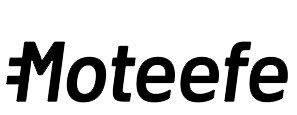YouTube Doing All It Can to Promote Good Content in the Times of COVID-19
As the COVID-19 continues to wreak havoc around the world, all spheres of our life are reeling in the aftermath. Around the world, cases seem to be on the increase and most governments are putting curfews in place to prevent the further spread of the virus. During this time of need, several people have been accused of spreading false information regarding the disease. When everything is digital, it becomes effortless to popularize and legitimize fake news. Since doing so can have serious repercussions, officials are asking people to be careful regarding what they share with family and friends. Therefore, having a legitimate source for news and updates regarding the COVID-19 has become integral, and Google seems to be stepping up to the occasion. Here’s a look at how YouTube and Google are handling the situation.
Saving Grace from Google
Google recently released specifications regarding how they are helping users fight the COVID-19. They have set up an education website that will help users gain insight into how the virus works and how we can protect ourselves against it. This website is working in tandem with the Trump administration to help curb the spread of the virus. This partnership with the government will help users gain information regarding how the virus spreads, WHO guidelines and even CDC control measures. The initial version of the website was to become active on the 16th of March.
Furthermore, reports state that Verily, which is owned by Google’s parent, Alphabet, is working on setting up COVID-19 testing centers. These will launch in the San Francisco Bay Area and will help speed up the testing process, limiting its spread. The company is also said to be developing an online tool to help patients self-quarantine themselves if they show symptoms. However, both these tools are only in their testing phase and may require a lot more time to become operational. Furthermore, the tech giant will also dispense vital information using Search, Maps, and YouTube. Let us take a look at what YouTube plans to do.
Google’s homepage now promotes the Do the Five campaign, which aims to raise awareness regarding measures people should take to limit the spread of the disease. These guidelines, which have been devised by the WHO, has been popularized by Google. Within just 24 hours from release, these guidelines have been viewed by millions in the US alone. Google’s My Business will also allow businesses to mark themselves as Temporarily Shut due to the COVID-19.
From Google to YouTube
YouTube has been spread misinformation in the past, and Google aims to stop that from happening this time. Therefore, Google has taken down thousands of videos that promote misleading and factually incorrect news regarding the COVID-19. Several of these videos claimed to have treatments and prevention methods against the coronavirus but had no medical proof to back up their claims. Similarly, Google Maps has also taken down malicious content and reviews regarding healthcare locations.
Furthermore, the tech giant has warned content creators against posting false information. Also, they have told creators that due to staffing changes owing to the COVID-19 outbreak, more and more reviews will rely on automated systems. Therefore, most of the removals and revisions will be done by automated algorithms and not through human intervention.
This may lead to an increase in video removals, with even some video which does not violate policies being taken down. In such cases, creators can appeal against the taking down of their video, and the teams associated with QC&QA will review the decision. However, YouTube has also made it clear that such reviews will take longer than usual due to a workforce shortage. Furthermore, the company will be more careful about what content goes up in order to prevent the spread of false information. Everything, including live streams, will be carefully analyzed with content awaiting review not being available via search or in recommendations.
YouTube will also come out with a new row of verified content on its homepage to help people looking for updates on the viral outbreak. These videos will feature news from authoritative outlets and health providers, rather than random users. This COVID-19 shelf will be available in 16 countries initially, and this includes the US, UK, India, Germany, Italy, and Brazil from this week onwards. In due time, it will be made available to more countries. Google has also pulled paid ads that try to capitalize on the virus from YouTube, giving more space to NGOs and government authorities.

Being a cinephile with a love for all things outdoorsy, Athulya never misses a chance to chase inspiring stories or poke fun at things, even when the subject is herself. Currently pursuing a degree in mechanical engineering, she is someone innately interested in technical and scientific research. Music reviews and op-eds define her as they allow her to explore different perspectives. Though sometimes she thinks she makes more sense playing the guitar than she does while writing.








